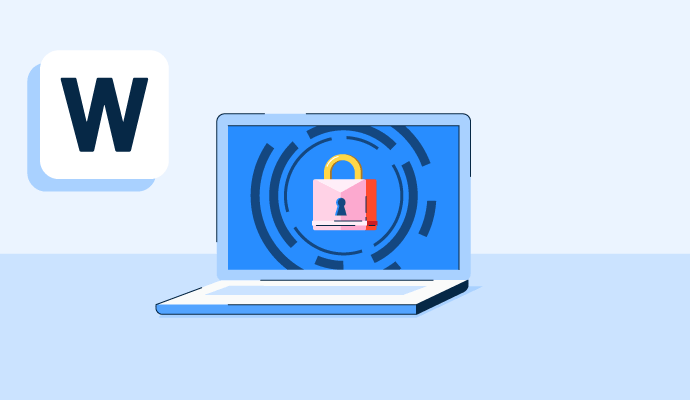In today’s digital landscape, website security isn’t just an option—it’s a critical necessity. With cyber attacks increasing by 38% year-over-year and small businesses being targeted 43% of the time, protecting your online presence has never been more important. Whether you’re running an e-commerce store, a corporate website, or a personal blog, implementing robust security measures can save you from devastating data breaches, financial losses, and reputation damage.
1. Implement Strong Authentication Systems
The foundation of website security begins with robust authentication protocols. Weak passwords remain one of the most common entry points for cybercriminals, with 81% of data breaches involving compromised credentials.
1.1 Multi-Factor Authentication (MFA)
Multi-factor authentication should be your first line of defense. This security layer requires users to provide two or more verification factors before gaining access. Beyond traditional passwords, implement biometric authentication, SMS codes, or authentication apps like Google Authenticator.
1.2 Password Policy Implementation
Password policies must enforce complexity requirements including uppercase and lowercase letters, numbers, and special characters. Set minimum password lengths of 12 characters and require regular password updates every 90 days.
For businesses looking to implement comprehensive security policies as part of their digital strategy, check out our Services page to learn about our cybersecurity consultation offerings.
2. Keep Your Software and Plugins Updated
Outdated software creates vulnerabilities that hackers actively exploit. Content Management Systems like WordPress, Drupal, and Joomla regularly release security patches that address newly discovered threats. Failing to update these systems promptly leaves your website exposed to known security flaws.
2.1 Automatic Update Configuration
Automatic updates should be enabled for critical security patches. However, major updates should be tested in a staging environment first to ensure compatibility with your existing plugins and themes.
2.2 Plugin Management Best Practices
Plugin management requires particular attention since third-party plugins often contain security vulnerabilities. Remove unused plugins immediately, keep active plugins updated, and only install plugins from reputable developers with good security track records.
3. Install SSL Certificates and Enable HTTPS
Secure Socket Layer (SSL) certificates encrypt data transmission between your website and visitors’ browsers, protecting sensitive information from interception. HTTPS (HTTP Secure) has become a ranking factor for search engines, making SSL certificates essential for both security and SEO performance.
3.1 Certificate Types and Selection
Certificate types vary in validation levels. Domain Validated (DV) certificates provide basic encryption, while Extended Validation (EV) certificates offer the highest level of trust with visible security indicators in browsers.
3.2 Implementation Benefits and SEO Impact
Implementation benefits extend beyond security. HTTPS improves user trust, prevents browser security warnings, and enhances your website’s credibility with both visitors and search engines. Our team can help you implement SSL certificates as part of our comprehensive digital marketing approach—visit our About Us page to learn more about our expertise in technical SEO and security implementation.
4. Regular Security Monitoring and Scanning
Continuous monitoring helps detect security threats before they cause significant damage. Automated security scanning tools can identify malware, suspicious code changes, and potential vulnerabilities in real-time.
4.1 Security Monitoring Tools
Security monitoring tools like Sucuri, Wordfence, or SiteLock provide 24/7 surveillance of your website’s security status. These tools alert you immediately when suspicious activities are detected, allowing for rapid response to potential threats.
4.2 Vulnerability Assessment Protocols
Vulnerability assessments should be conducted monthly to identify weak points in your security infrastructure. Regular penetration testing by security professionals can uncover hidden vulnerabilities that automated tools might miss.
If you’re looking for comprehensive digital marketing services that include website security as part of a holistic online strategy, explore our Services page to see how we can protect and optimize your digital presence.
5. Implement Robust Backup Systems
Even with the best security measures, breaches can still occur. Regular backups ensure you can quickly restore your website to a clean state if security incidents happen.
5.1 Backup Frequency and Scheduling
Backup frequency should align with your content update schedule. High-traffic websites with frequent updates need daily backups, while static websites might only require weekly backups.
5.2 Storage Solutions and Redundancy
Storage locations should include both on-site and off-site options. Cloud storage services like Amazon S3, Google Cloud, or dedicated backup services provide secure, accessible storage for your backup files.
5.3 Restoration Testing Procedures
Testing backup restoration is crucial—backups are worthless if they can’t be successfully restored. Test your backup restoration process quarterly to ensure reliability when you need it most.
6. Configure Web Application Firewalls (WAF)
Web Application Firewalls act as shields between your website and potential threats, filtering malicious traffic before it reaches your server. WAFs can block common attacks like SQL injection, cross-site scripting (XSS), and distributed denial-of-service (DDoS) attacks.
6.1 Cloud-Based WAF Solutions
Cloud-based WAFs like Cloudflare, AWS WAF, or Akamai provide comprehensive protection with global content delivery networks that improve both security and website performance.
6.2 Custom Rule Configuration
Rule customization allows you to tailor security policies to your specific website needs while minimizing false positives that could block legitimate traffic.
7. Secure Your Hosting Environment
Your hosting provider plays a crucial role in your website’s security infrastructure. Shared hosting environments can expose your website to risks from other sites on the same server.
7.1 Hosting Security Features
Hosting security features to look for include server-level firewalls, regular security updates, malware scanning, and DDoS protection. Choose hosting providers with proven security track records and 24/7 monitoring capabilities.
7.2 Server Hardening Techniques
Server hardening involves configuring your server to minimize attack surfaces by disabling unnecessary services, implementing proper file permissions, and using secure protocols for file transfers.
For questions about implementing these security measures or if you need professional guidance, don’t hesitate to reach out through our Contact Us page where our security experts can provide personalized recommendations.
8. User Access Control and Permission Management
Limiting user access reduces the potential for both accidental and malicious security breaches. Implement the principle of least privilege, giving users only the minimum access necessary to perform their roles.
8.1 Role-Based Access Control
Role-based access control ensures that different user types have appropriate permission levels. Content creators shouldn’t have administrative privileges, and administrators should use separate accounts for routine tasks.
8.2 Access Audit Procedures
Regular access audits help identify and remove unnecessary user accounts, update permission levels for role changes, and detect potentially compromised accounts.
9. Database Security Hardening
Databases often contain your most sensitive information, making them prime targets for cybercriminals. Proper database security involves multiple layers of protection.
9.1 SQL Injection Prevention
SQL injection prevention requires input validation, parameterized queries, and stored procedures that prevent malicious code execution through user inputs.
9.2 Database Encryption Standards
Database encryption protects stored data even if unauthorized access occurs. Encrypt sensitive data both at rest and in transit using industry-standard encryption protocols.
9.3 Access Control Implementation
Access restrictions should limit database connections to authorized applications and IP addresses only, preventing external access attempts.
10. Incident Response Planning
Despite your best prevention efforts, security incidents may still occur. Having a well-defined incident response plan ensures quick, effective action that minimizes damage and recovery time.
10.1 Response Team Structure
Response team roles should be clearly defined with specific responsibilities for detection, containment, investigation, and recovery phases of incident response.
10.2 Communication Protocols
Communication protocols must include internal notification procedures, customer communication strategies, and regulatory reporting requirements where applicable.
10.3 Recovery and Reinforcement Procedures
Recovery procedures should outline steps for system restoration, data recovery, and security measure reinforcement to prevent similar incidents.
If you experience a security incident or need immediate assistance, our technical team is available through our Support page to help you respond quickly and effectively. Additionally, explore our About us page to see examples of how we’ve helped other businesses implement comprehensive security solutions.
Website security requires ongoing vigilance and a multi-layered approach combining technical measures, regular monitoring, and proper planning. These ten strategies provide a comprehensive foundation for protecting your website against evolving cyber threats.
Remember that security isn’t a one-time implementation but an ongoing process that requires regular updates, monitoring, and adaptation to new threats. Investing in robust website security not only protects your business and customers but also builds trust and credibility that contributes to long-term success.
Start implementing these security measures today, and consider partnering with experienced professionals who can help ensure your website remains secure against current and emerging threats. Your website’s security is an investment in your business’s future—don’t wait until it’s too late to take action.
To visit our social media please click on Facebook and Instagram





